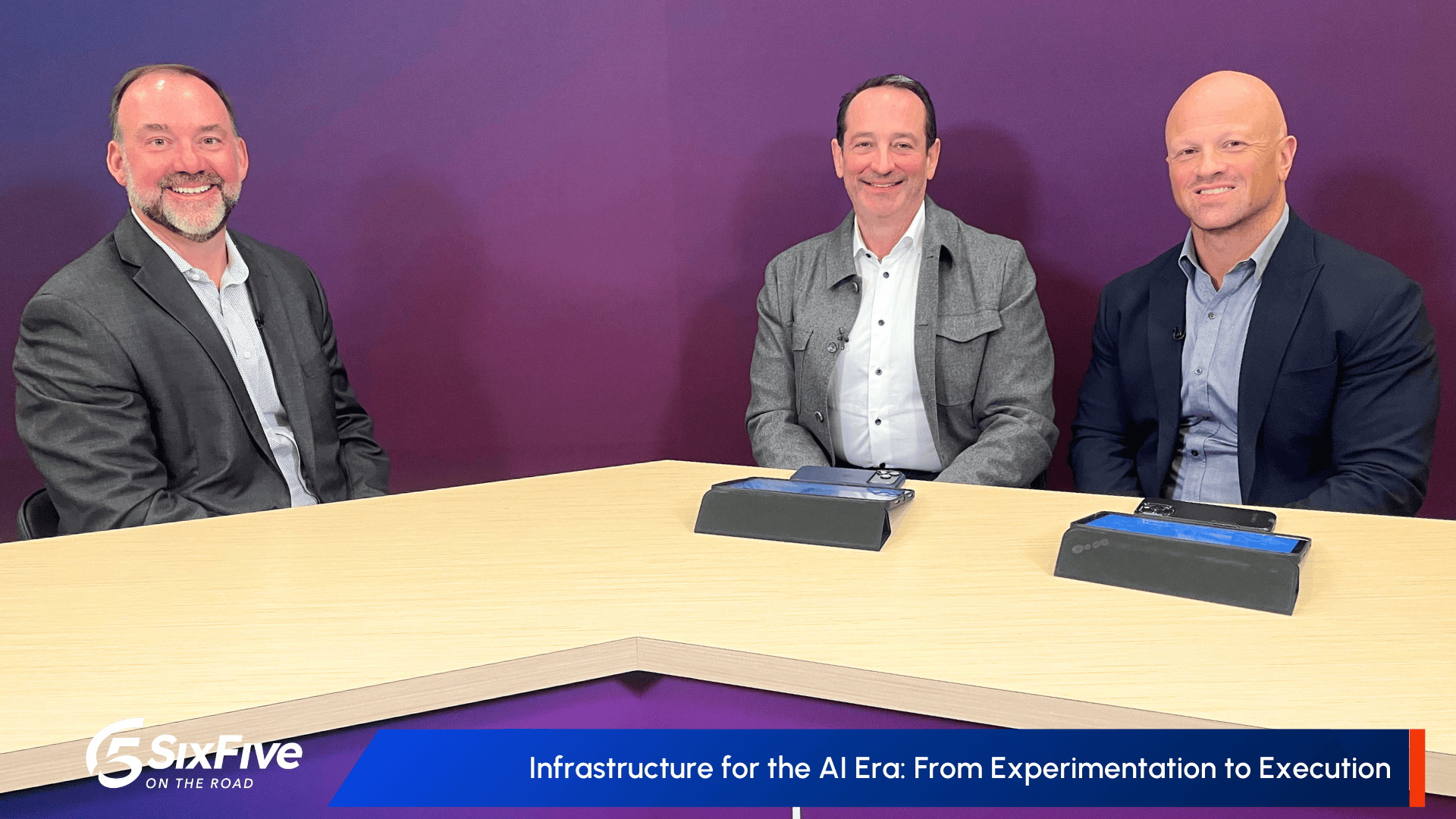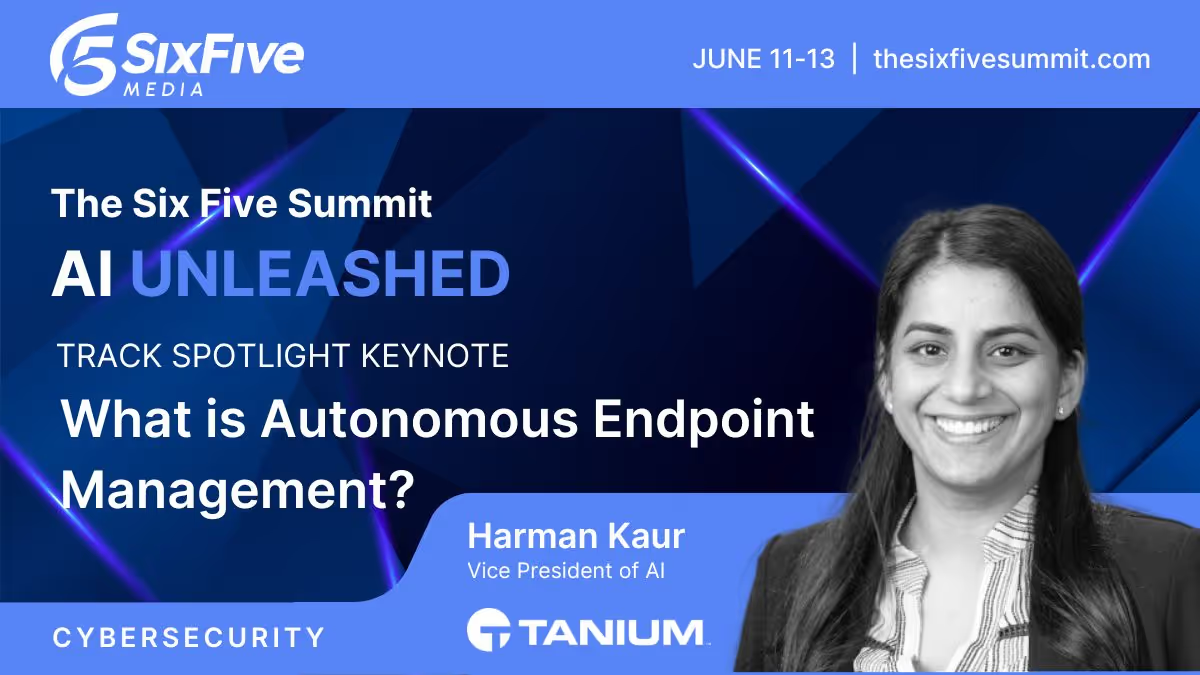Adobe Acrobat Studio: The Future of AI Document Productivity - Six Five Media
Michi Alexander, VP of Product Marketing at Adobe, joins the webcast to discuss how Acrobat Studio’s AI-powered tools are transforming document productivity for enterprises by automating insights, enhancing collaboration, and delivering polished outputs.
AI is changing how enterprises extract value from their internal data, including documents.
Six Five hosts Melody Brue and Keith Kirkpatrick dive into this topic with Adobe's Michi Alexander, Vice President, Product Marketing, Business Professionals, for a conversation on how Adobe Acrobat Studio is shaping the future of AI document productivity.
Highlights from their conversation include:
🔹Shifts in the Productivity Landscape: Information overload and increasingly collaborative, cross-functional teams require new AI-powered approaches to manage and use documents efficiently.
🔹Reducing Workflow Friction with AI: Acrobat Studio leverages AI to summarize, extract insights, and reformat critical enterprise documents, saving time and reducing friction for business professionals.
🔹Unique Value for Enterprises: Purpose-built for PDFs, Acrobat Studio combines Adobe’s legacy of document expertise with advanced AI to drive actionable, trustworthy, and polished outputs.
🔹Adobe’s Vision: Building on the PDF's ubiquity in business, Adobe envisions every document as a launchpad for smarter decisions, robust collaboration, and innovative outcomes.
Learn more at Adobe.
Watch the full video at sixfivemedia.com, and be sure to subscribe to our YouTube channel, so you never miss an episode.
Or listen to the audio here:
Disclaimer: Six Five Media is for information and entertainment purposes only. Over the course of this webcast, we may talk about companies that are publicly traded, and we may even reference that fact and their equity share price, but please do not take anything that we say as a recommendation about what you should do with your investment dollars. We are not investment advisors, and we ask that you do not treat us as such.
Melody Brue: Welcome to this Six Five virtual broadcast. I'm Melody Brue for more insights and strategy with Keith Kirkpatrick from the Futurum Group. We are excited to have Michi Alexander, Vice President, Product Marketing, Business pros and consumers at Adobe to talk about one of our favorites, Adobe Acrobat Studio. So by infusing AI into every step of the document journey, Adobe Acrobat Studio can transform PDFs into dynamic, shareable content that accelerates decisions and can drive real impact. I just shared it with my kids use it. I use it. We're fans here, so we're excited to talk to you about this, Michi, and to explore how Acrobat Studio is redefining document productivity, what makes it stand out in this evolving landscape and the top strategies that you're seeing enterprises use that unlock the speed, accuracy of business outcomes. So let's get started.
Michi Alexander: Thanks, Melody. Super excited to be here.
Melody Brue: Yeah, happy to have you. And you too, Keith. Always good to see you.
Keith Kirkpatrick: Absolutely. Mel. Like you said, I'm a power user and I love all of these new enhancements, so I would love to just get into it.
Melody Brue: Awesome. So we've seen how dramatically the document game has changed over the past few years. We're seeing this perfect storm of remote work teams across different regions, time zones has made collaboration complex. AI is obviously reshaping what's possible with content. And people are literally. Not literally, not literally. And people are drowning in information, but starving for actual insights. So you've been in this space a long time, how are you seeing this evolution? Teams are really working with documents differently now. And where does something like Adobe Acrobat Studio fit into that bigger picture?
Michi Alexander: Yeah, sure. And so to your point, like the landscape is totally different right now with Genai, what we're seeing is like what's being expected of knowledge workers has fundamentally changed over the past few years. There's a couple of really major themes that we're tracking and really solving for our users. The first one, and you mentioned this, it's like there's information overload with Genai, there's just this explosion of content. What's being asked of users is to be able to break through all the information, figure out what matters and really get to results faster. Everything is about speed, getting more done and faster. Then from a collaboration standpoint, collaboration is fundamentally changing. It used to be just human teams. Now it's like human and AI teams that are mixed. Also, collaboration is expected not just at the end of a process, but it really starts right from the front. And then what's also really changing is just communication and users are being asked to like, communicate with impact. And before it was very much on the marketing teams to create the content or create the presentations. But we, what we're seeing now is just this proliferation of like, who's being asked to create content. And the expectation is that it's not just about the content you create anymore. It needs to be visual, it needs to be in other formats to really resonate and keep up with the ongoing market trends.
Keith Kirkpatrick: That's really some great points there, because if you think about the speed of business, it continues to accelerate. Nemesh, I was wondering if you could talk a little bit about some of the specific ways in which enterprises can actually get some value directly from Acrobat Studio right now.
Michi Alexander: Yeah, I think it's a great question. First off, documents. Documents are everywhere. And we as Acrobat PDF is our number one file format. It's the number one file format for businesses worldwide. And there's over 3 trillion PDFs in circulation. But I think what's really interesting is like when you think about what kind of content is in PDFs, it's. It's like your most valuable and final form of copy. So it's like your contracts, it's proposals, it's information that is so valuable and very important for an organization. And so even though there's all of these documents all over the organization, there's a few things that aren't keeping up. So critical insights are just buried in long documents. There's PDFs everywhere, but a lot of organizations aren't able to really get to the insights that are in those documents and to be able to use them. And so teams are spending a lot of time searching for information. A lot of documents are still like paper documents, and so the digital versions are scanned in. And so key and really important information is getting lost. I think even if you are finding the PDF that has the content, a lot of times the PDF also gets disconnected from the information that you got from a user. And so you have your PDF here, it doesn't have context, which is often just a note. And so you're not quite sure what to do with that information. And then the third thing is then usually with documents, you have a document, you get your insights, and a lot of times you have to create content from them. So like, I have a long report, I may need to create a summary, I may need to create a presentation, I might have to create an infographic. And so really consuming a document is just the start of that workflow. And Acrobat Studio is really designed to address these three key points. So getting to insights, rethinking what collaboration looks like within the document space, and then also being able to create content that's both easy to create so that there's no design skills necessary, but also can help communicate with impact.
Melody Brue: Yeah, that communicating with impact I think is so important. And you talked about being able to design and not everybody feels confident in having that skill. Getting to that point of being like, I'm confident that I can design something. And we know that when people have some visuals to follow along with, they do absorb the information a little bit better. So you talked about the different types of documents, how things have changed in terms of contracts, reports, research proposals, things like that. But the fact that these are really long, complex and unstructured documents. So how is AI helping to kind of unlock that value of that unstructured data? And how important is that as we go into this next phase of productivity which is going from, you know, sort of chat based interfaces to agentic AI, how important is that? Is the AI in this kind of transformation?
Michi Alexander: The AI really unlocks the potential of human power. And so like when we're thinking about the documents and how it's helping it like the AI is really like another teammate that you can help get to things and better answers faster so that you can really spend time thinking about the things that are very important and required, like more detailed thinking or strategic thought. So the way AI Assistant, for example, helps is it really helps you get to like summaries, it helps you get to answers within your content, it's able to help you with next steps. What's really important with. And this is a big differentiator for us and we spent a lot of time actually investing in this. AI is good, but ultimately like a human needs to validate. And so we spent a lot of time on citations because a lot of times with what you're hearing is like the AI is hallucinating. And so with Acrobat Studio, what we've really focused on is you're selecting the documents so that the AI is not crawling your servers. You're also having citations that take you to the precise location in the document so that you can either validate the answer, or you can get more context. And so a user feels really good about what the answer is, and can build trust in the decisions they're making from AI instead of having it disconnected. So that's been really important for us. I think the other way we are really using AI is within what we're calling PDF spaces. And so you can basically collect files, links. You can do up to 100 right now and basically you drop it into a PDF space and this is a great way to interact with like 100 documents instead of a document at a time. So what an AI assistant would do is basically help you get to different answers. It's more of a thought partner where you can say like I'm trying to put together this sales proposal and it will really help you and guide you on like this is what I think you should do in there. There's also what we have what we're calling like pre built assistance. So like there's an analyst, entertainer, which is always a fun one. And then you can also basically easily customize your own. And so in just plain language I can easily say what I'm trying to do or who I'm talking to. An AI assistant will generate instructions that you can easily edit. So really helping to guide the recipient or the user on what types of answers you're looking for and really letting the user remain in control but have more help to move things along faster, to feel confident in what they're doing and making sure that they're getting the right information from the documents spaces.
Melody Brue: And just a quick little use case, I used it just the other day for all of my expenses. I took all of my expenses over several months and I asked it to give me a breakdown and it was like I would have spent hours to do all of that. It gave me a breakdown on how much I'm spending on food and beverage, how much I'm spending on hotels, which hotels I frequent. So I can easily go and like track for next year. This is what I can expect. You know, it was really quite impressive. How about you, Keith, how do you use it?
Keith Kirkpatrick: Well, Mel, I actually use it for work in my sort of day to day. Obviously, as you know, we go through and we get tons of different types of documents. And one of the challenging things is actually understanding if we're looking at a summary where's this piece of information coming from? Right. And it's just so nice to be able to track that back to the original or to actually identify and look at. Okay. It actually did say that XYZ happened or this company had this earnings or they did this initiative. So I really find that useful and I love that.
Michi Alexander: That's, I think what's been most exciting since we've come to market. We started off with a bunch of use cases that are more work driven, whether it's like comparing and contrasting contracts, employee onboarding. But as you get in there, you start to realize like, oh, actually like I can bring in related documents or unrelated documents. And so we're just seeing this explosion of use cases, both from a work front as well as a personal one. Because, Melody, to your point, right, like you just bring in certain things that you may not have spent as much time in or looked at in a certain way and suddenly you have insights and you have helped to go through all of this.
Keith Kirkpatrick: Yeah, yeah. It really is amazing, you know, having used it myself, just being able to really integrate all of this within the flow of activities I would be doing anyway. So I think that's really powerful and it kind of. It brings up another point which I want to ask about, which is, you know, Melody and I certainly do a lot of research in the space around AI and one of the things that comes up a lot is this idea of generating or realizing ROI from artificial intelligence. Wondering if you could talk a little bit about what makes Adobe different in really being able to enable that.
Michi Alexander: Yeah, really good question. And it's a tough one. I think what we're seeing across, and you guys are probably hearing a lot of this too, is like all companies are doing a lot of AI experiments and so there's all of these experiments around the organization and what's hard is it. And teams are being asked, like, what's the ROI on this? What are the outcomes? And so a lot of times the answers for some of these tools are not clear. But with Acrobat Studio, you know, we've really invested a lot of time in how we're saving, like, what benefit we are doing for the user as well as the organization. And so we've done a lot of different studies and work with Forrester and others to really identify how much time you can save. What the. Like this with Acrobat Studio having not just Doc, it has PDF tools, it has AI, it has actual creation tools and the full suite of Express Premium as well as Firefly generative capabilities. So within one platform, you basically will have to reduce tool sprawl. It'll consolidate the number of separate tools you'll need, so the cost for software would be down. And really like the amount of time we are seeing saved from these users is significant. It's anywhere from like 45 to 75% of time on document tasks. That really unlocks more time for our users to get more things done, to be able to focus on higher value work. I think, Keith, to your point, the reason why it's so much easier to prove ROI is because it's built into the Acrobat workflows that you're already in. You're already viewing a PDF, you're already editing a PDF. And so instead of having to break the user workflow, go out and then come back, you're able to do it all within that platform. And that's going to reduce errors and also speed things along to not jump.
Melody Brue: Around from the context switching and having to go from different application to application. I think that's a huge, that's very powerful in terms of helping to, to realize that roi. So as you look kind of forward in terms of document productivity, what's Adobe's biggest vision, the grand vision for AI powered document productivity? And how much is that shaped by your history with PDF and what PDFs can now do in that kind of grand vision?
Michi Alexander: Yeah, great question. So we have a big vision for digital document transformation and it really stems from the three pillars that you're starting to see emerge with Acrobat Studio. So it's about faster access to insights and helping our users feel confident in the decisions they're making. It's about AI powered sharing that's really tailored to the recipient experience so that they have the context and all of the same knowledge that the sender has and can collaborate much better. And then it's also about smarter content creation. So really being able to take insights, go from like an insight to whether it's a presentation, an audio overview or other capabilities, really outputting into the modality that is best going to communicate the message. So it's around these three pillars and really about how you make it easy for a user to get through the entire workflow. It's not about one of these pillars in isolation. It's really connected to what a business professional needs to do and how they're going to get it done in that workflow. So we're really excited about this. I think for us this is like the, we've been saying like we. Acrobat's been around for 32 years. This is probably the biggest innovation for us since we've launched and melody, to your point, like PDF is at the heart of everything we do. We're very focused on what businesses need. PDF and businesses are synonymous. So that is at the core and where we are the strongest.
Melody Brue: Well, I think you definitely have two fans here and you know we've really seen the evolution of these, how these documents are used not just with AI, but also to fuel AI agents and kind of the future of productivity, like I mentioned. But we really appreciate you taking this time to spend with us to talk about this evolving world of PDFs and Adobe Acrobat Studio. It's been a pleasure. And I'm Melody Brew More insights and strategy Keith Kirkpatrick from Futurum Group and Michi Alexander from Adobe.
Keith Kirkpatrick: What a great and interesting conversation highlighting the new features in Acrobat Studio, and it's going to be really interesting to hear from business professionals and enterprises on the exciting new use cases for the product as we move forward. So I'd like to thank Melody Brew from Moor Insights and Strategy and Michi Alexander from Adobe. And of course, thank all of you for tuning in to the Six Five Virtual Webcast. Thanks very much and we'll see you soon.
MORE VIDEOS
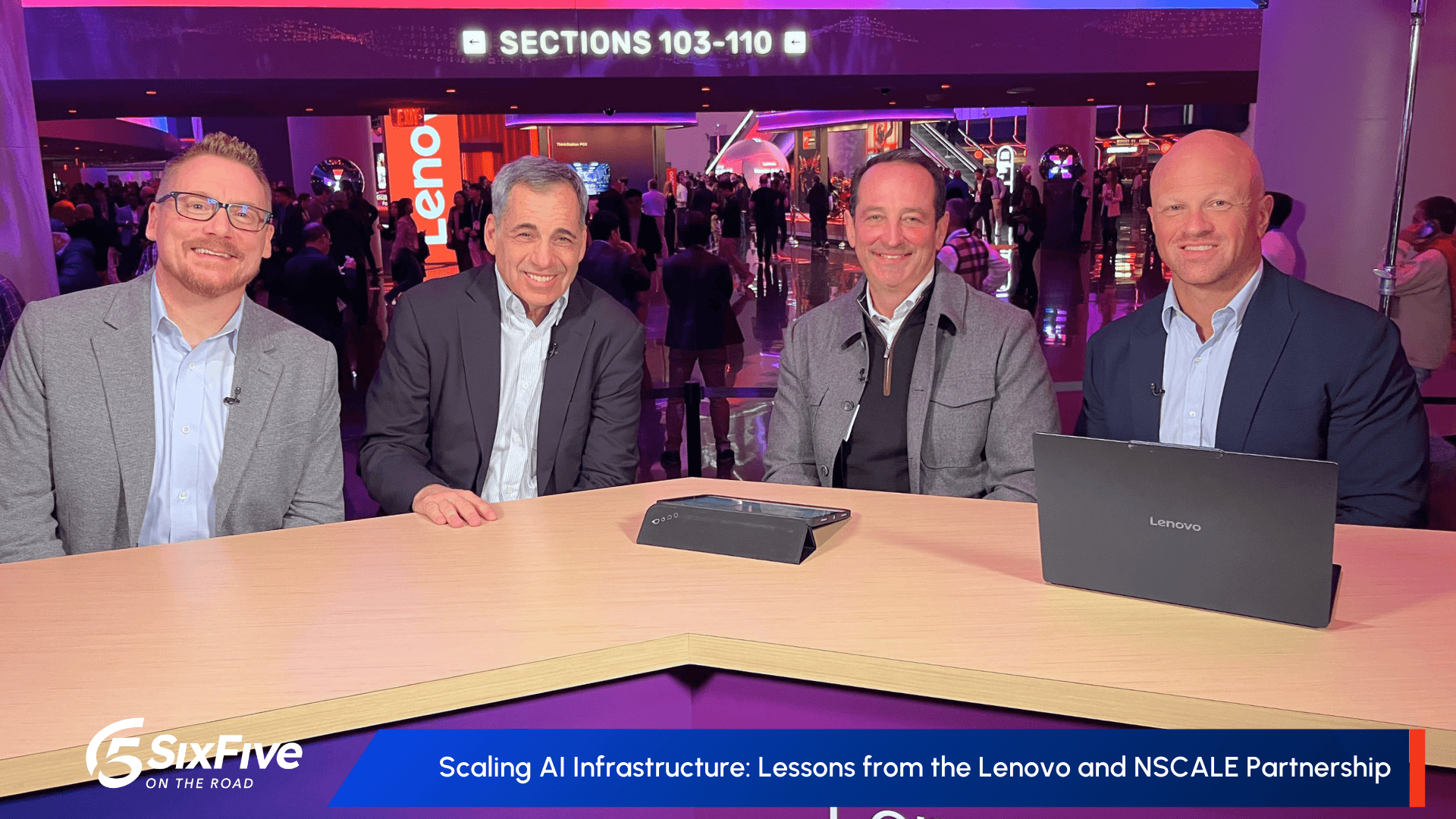
Scaling AI Infrastructure: Lessons from the Lenovo and Nscale Partnership - Six Five On The Road
Patrick Moorhead and Daniel Newman are joined by Lenovo’s Conor Malone and NSCALE’s Stu Pann to discuss the real-world challenges of scaling AI infrastructure from pilot projects into production environments.
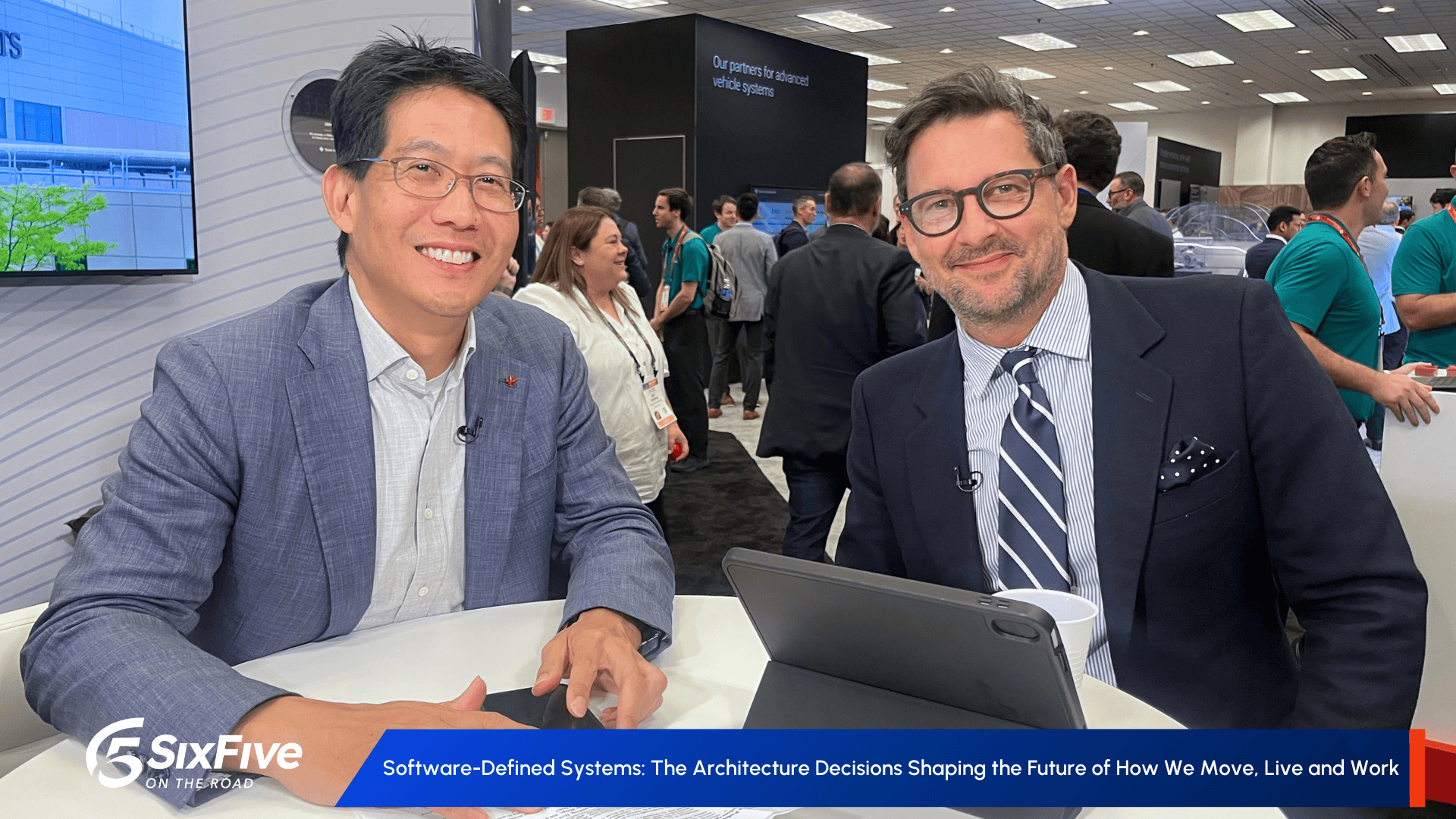
Software-Defined Systems: The Architecture Decisions Shaping The Future Of How We Move, Live And Work - Six Five On The Road at CES 2026
Mark Ng of Texas Instruments joins Six Five On The Road at CES 2026 to discuss how software-defined architectures, real-time intelligence, and semiconductor design are reshaping vehicles and other intelligent physical systems, and why long-term architectural decisions now matter more than ever.
Other Categories
CYBERSECURITY
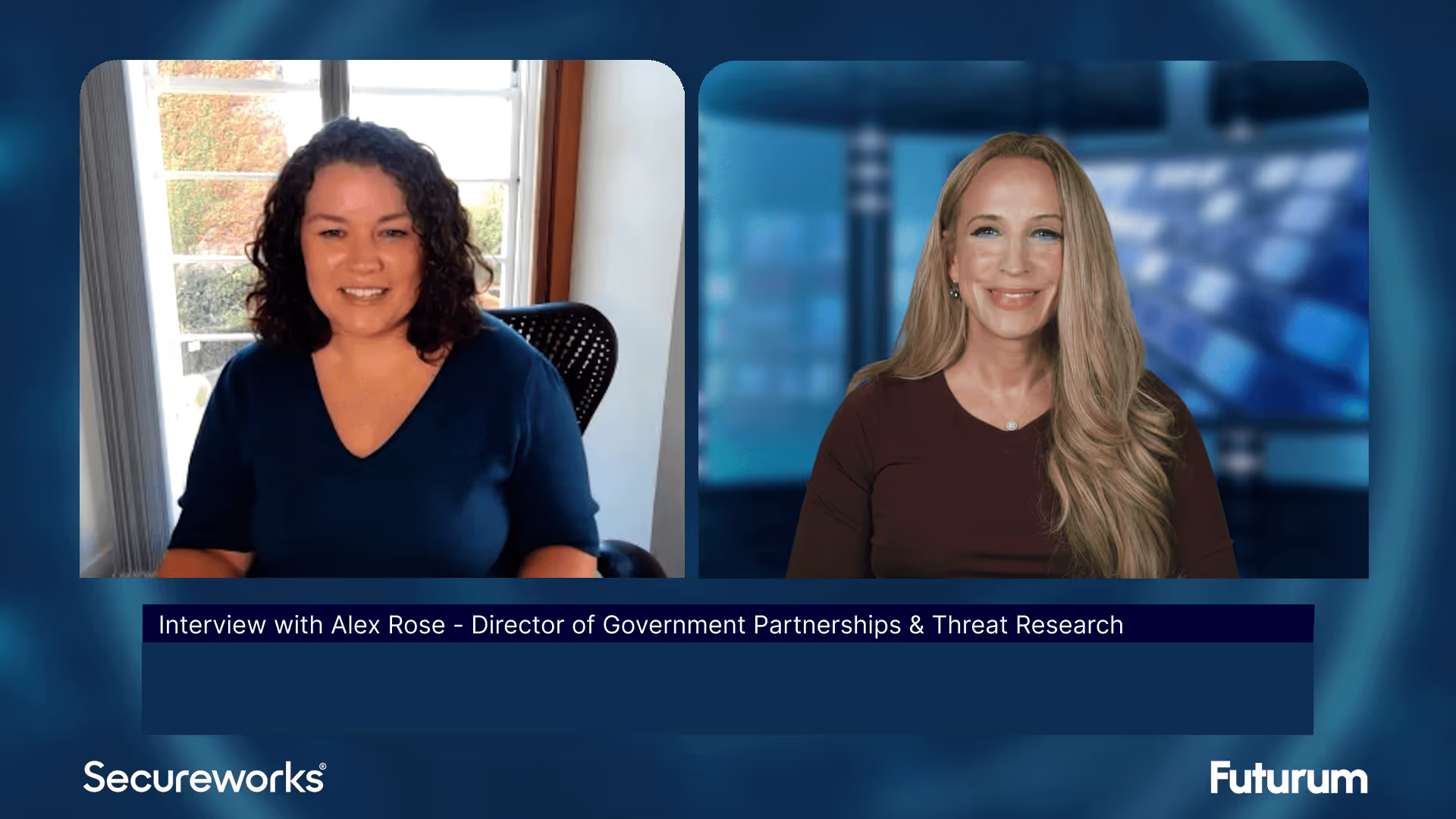
Threat Intelligence: Insights on Cybersecurity from Secureworks
Alex Rose from Secureworks joins Shira Rubinoff on the Cybersphere to share his insights on the critical role of threat intelligence in modern cybersecurity efforts, underscoring the importance of proactive, intelligence-driven defense mechanisms.
QUANTUM
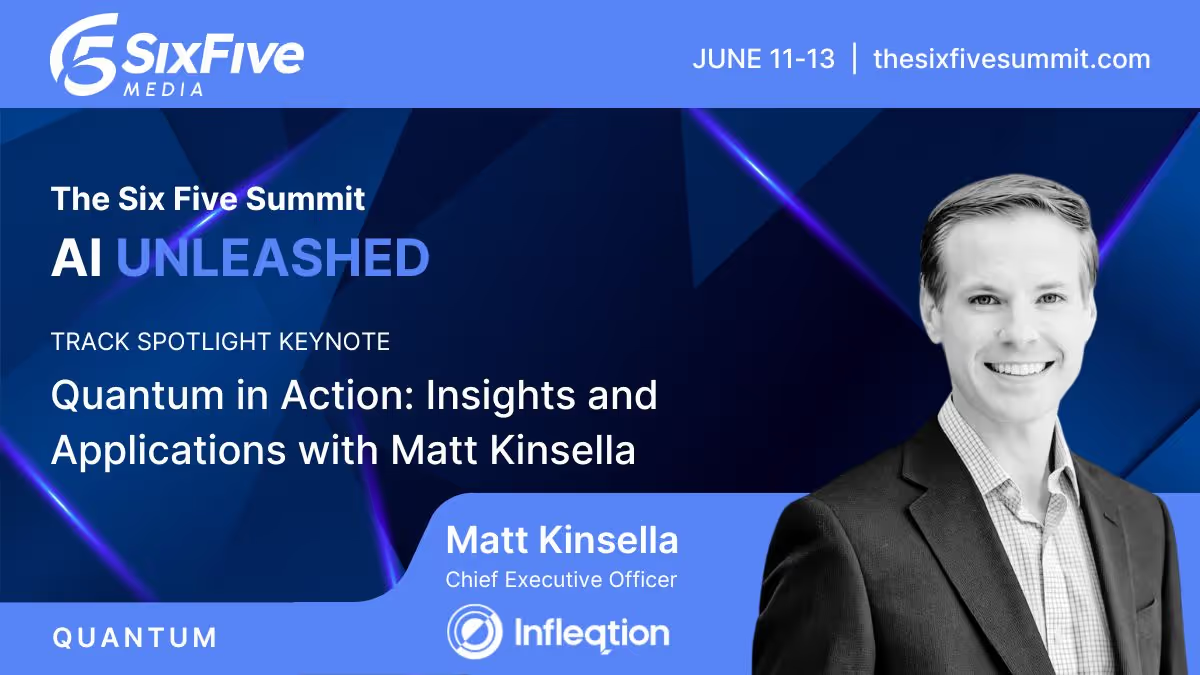
Quantum in Action: Insights and Applications with Matt Kinsella
Quantum is no longer a technology of the future; the quantum opportunity is here now. During this keynote conversation, Infleqtion CEO, Matt Kinsella will explore the latest quantum developments and how organizations can best leverage quantum to their advantage.
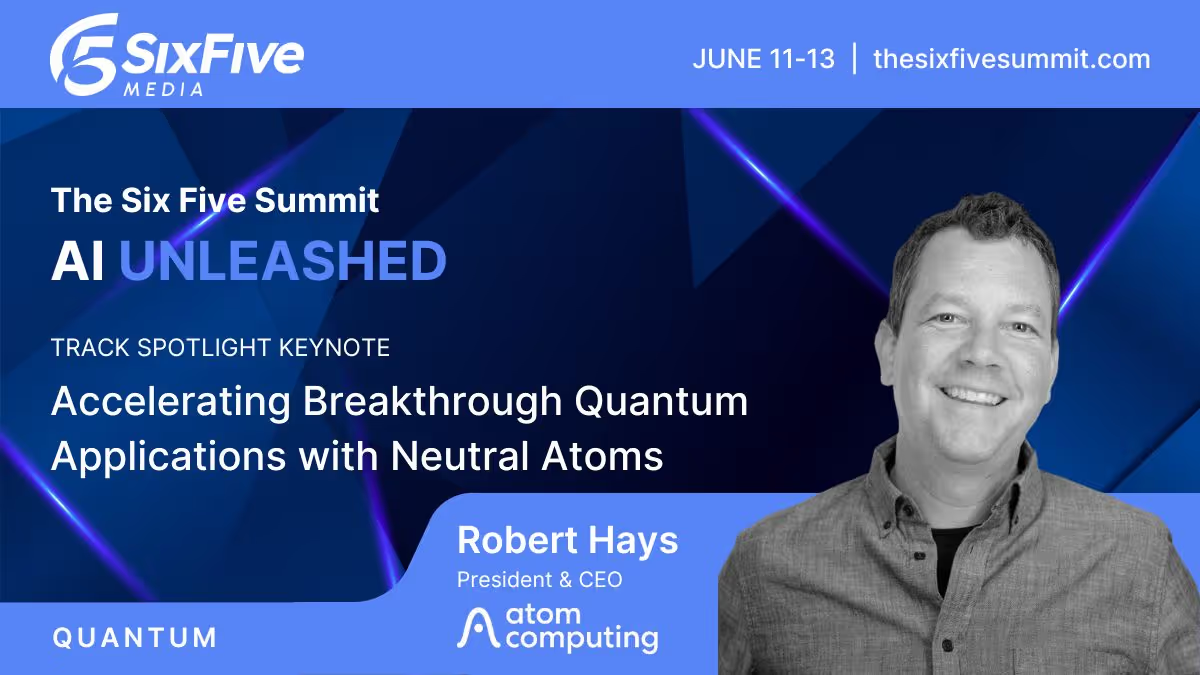
Accelerating Breakthrough Quantum Applications with Neutral Atoms
Our planet needs major breakthroughs for a more sustainable future and quantum computing promises to provide a path to new solutions in a variety of industry segments. This talk will explore what it takes for quantum computers to be able to solve these significant computational challenges, and will show that the timeline to addressing valuable applications may be sooner than previously thought.



